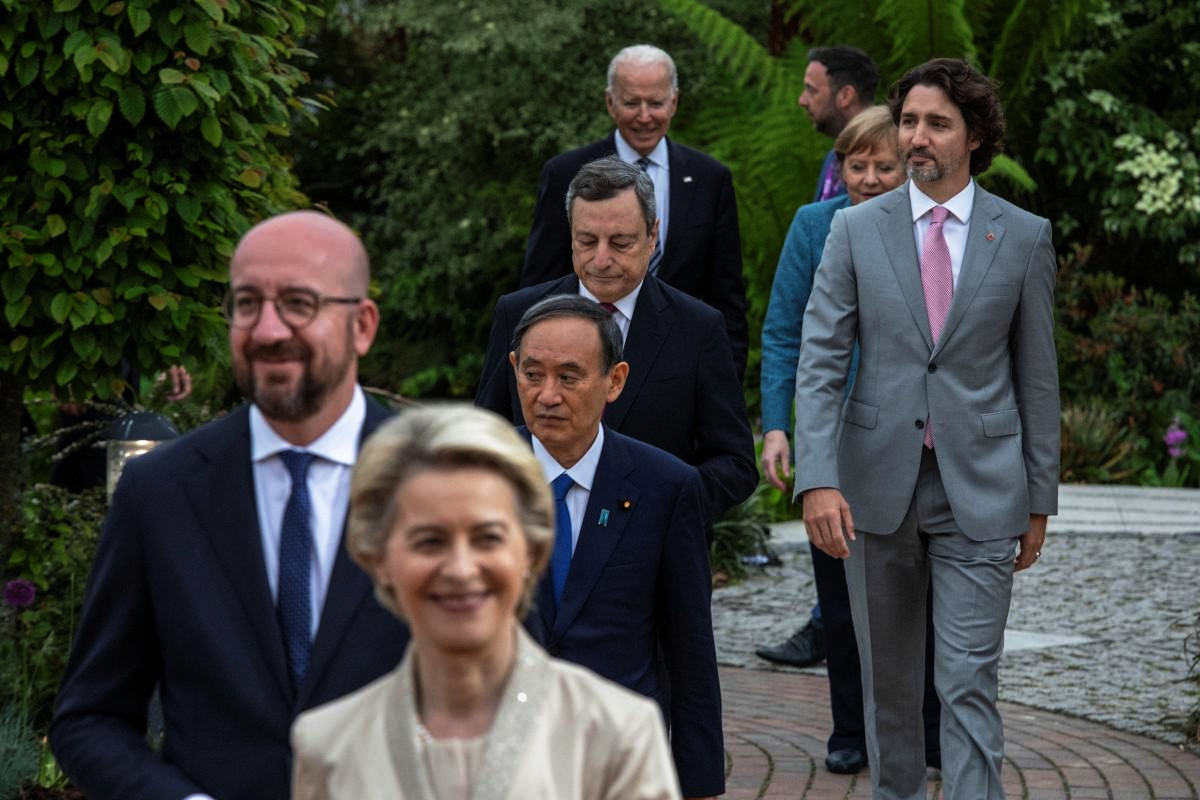Last week, British Prime Minister Boris Johnson invited Australia, India, and South Korea to the G-7 Summit he hosted in Cornwall, England. In this instance, he sought to “work with a group of like-minded democracies to advance shared interests and tackle common challenges”.
While the idea of a “D-10” has been around for over a decade, some – the French and Italians – see this as an anti-China coalition, something with which they feel uncomfortable. Italy has signed on to China’s Belt and Road initiative, as have some other Eastern European members of the EU and is sensitive as to how to manage relations with the Asian colossus.
While the idea of a D-10 pitting democracies against autocracies – populist or otherwise – sounds attractive, is it feasible?
D-10 countries will find it difficult to compete with China’s Belt and Road initiative because their governments face strong pressures at home to build up their own national infrastructures. Leaders like U.S. President Biden face an uphill battle in getting Congress to pass a major trillion-dollar domestic infrastructure bill because the left-wing of the Democratic Party will not accept a bill that does not include spending on climate change and other non-infrastructural items.
Can democratically elected governments who face one or more opposition parties, a vibrant media, a strong civil society as well as an electorate every few years, convince their citizens to invest hundreds of billions of dollars in helping to build the infrastructures of developing countries in order to compete with China when they cannot even address their own domestic needs?
In addition, China benefits from an authoritarian government not constrained by the niceties of democracy. So, if the D-10’s goal is to convince developing countries to follow the example of the most powerful Western democracy, are they in a position to do so from a governance point of view?
Currently, many U.S. states governed by Republicans are legislating laws that, in effect, limit access to voting by minorities. 85% of Republicans still believe that the 2020 elections were “stolen” and that election fraud was widespread, contrary to every serious investigation that has taken place. As well, the continuing spectacle of senior Republican leaders denying that an insurrection took place on January 6th, preferring to hide behind a wall of lies, is not inspirational.
Is this the paragon of democratic leadership for developing countries to follow, most of which are composed of citizens of black, brown, Latino, and Asian origin that U.S. legislators are trying to disenfranchise domestically?
Other D-10 members also face challenges.
Canada’s image on the world stage has been tarnished by the recent revelations in which indigenous children were taken from their families between 1867 and 1965 and educated in the “white culture”, abandoning their cultural and linguistic heritage forever. Hundreds of these children died in captivity. Tens of thousands of indigenous people today have no access to clean water and many Canadians may well criticize a government that supports developing infrastructural investment in other countries while their own citizens remain deprived of essential services.
As well, Prime Minister Trudeau faces a nationalist government in Quebec that has passed a law prohibiting civil servants from wearing religious symbols. This is widely perceived as an anti-Muslim law aimed at women wearing the hijab. Such racist policies do not serve as an example of inclusive democracy.
While China’s treatment of its citizens is abysmal, its leadership does not seek to export its governance model. This leaves democracies with their inherent weaknesses at a disadvantage.
It remains to be seen if the D-10 can play a strong leadership role in global politics given the inability of many of its member states to lead by example. China’s political model appeals to many leaders who seek to remain in power indefinitely with no opposition to their rule.
It remains to be seen if the D-10 can provide an effective alternative to the populist and authoritarian leaders whom China currently supports.
Edición: Laura Espejo
Agradezco cada día que tengo la oportunidad de venir aquí, señaló el jardinero
Ap
El veterano se lesionó hace un año; videos lo muestran lanzando sin problemas
La Jornada Maya
Álvaro Arbeloa asegura que la diferencia se puede remontar
Ap
El californiano impresionó en la Liga de Puerto Rico
Antonio Bargas Cicero
